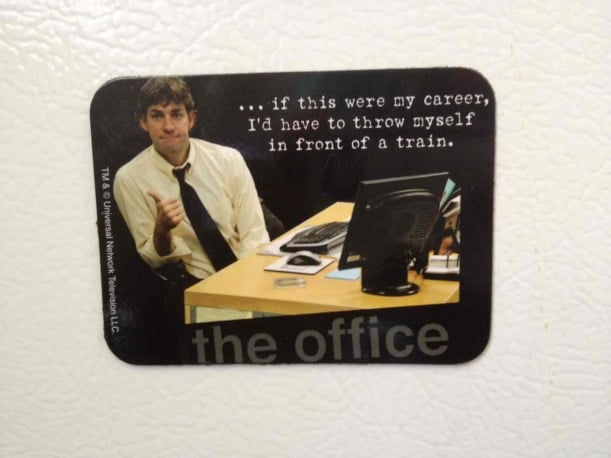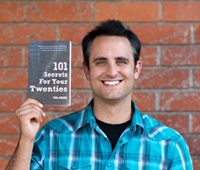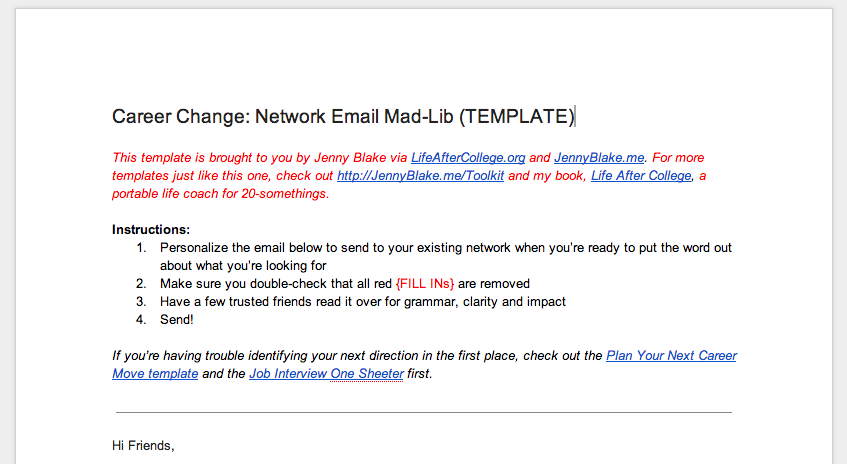Written by Paul Angone
As I left college and attempted to "find my passion," I felt like a 3rd grader trying to attempt Calculus. I couldn't even understand the question, let alone scratch the answer.
Each year that passed I felt like a character in The Office, working a job I hated because I couldn't figure out what job I loved.

Finding Your Passion Ain't 1 + 1
Only now at the tail-end of my twenties, do I feel I'm beginning to smell my passion; like walking into the front door and catching that first whiff of homemade cookies.
My passion: To empower twentysomethings with overwhelming amounts of truth, hope, and hilarity as I narrate the unfolding story of my generation, for my generation.
As I look back since I walked across that college graduation stage with such a passionate cluelessness, here are eight questions I've wrestled with these last eight years that have helped me find my passion.
8 Questions to Find Your Passion
1. Where have I failed the biggest?
Where have I embarrassed yourself like an 8th grader cracking his voice on his big solo? Where have I failed the biggest -- yet picked myself up and kept charging forward?
As I wrote in my book 101 Secrets for your Twenties:
"Your passion is not just something you do. Your passion is something you cannot NOT do...You find your passion when it’s totally failed, yet you refuse to let it fail."
For me personally that has been writing as I've sought to narrate the unfolding twentysomething story. No matter how many times I've burned these fingers in the process, I've refused to stop punching these computer keys. I learned to pay attention to those times I failed, but refused to give up. There's some secret sauce in this space worth putting a personal patent on. As Thomas Merton writes, "A man who fails well is greater than one who succeeds badly."
2. What are my top values?
Authenticity. Integrity. Right Relationships. Excellence with Fun. Perseverance through Pain.
These are the values that top my list. I've learned when I'm working outside of these values, anxiety tackles me like a security guard laying out a shoplifter. What are your top values? Make a list.
Your passion has to live inside the parameters of your top values or you will sabotage yourself.
3. What do people important to me say makes me come alive?
Pick three people closest to you and ask them when they have seen you come the most alive. Say it's for an assignment. Say work is making you ask.
You'll be surprised at the amazing things they say. Often times we won't give ourselves credit when it's due.
4. What are my favorite stories?
I've been on a five-month personal PR campaign for the movie Warrior -- about two estranged brothers and a father who are all fighting to change their destiny and find redemption. I've seen it three five times and can't help but shed a few cascading amount of tears at the end. It's up there with my other favorites -- Shawshank Redemption, Walk the Line, and Braveheart.
There's a powerful personal truth found in the stories that resonate the closest to you.
The common thread that runs through mine: the underdog who perseveres through pain, thrives from their authentic self, and succeeds at something sane people would never attempt. I can see my top values weaved into my favorite stories. How can I weave the themes from my favorite stories into the most important story I'll ever write -- my own.
5. What’s my top strengths?
Where are you most confident, competent, and crazy locked in? No clue? Taking the StrengthsFinder is a good place to start.
Basically, where do you kick the most ass? Think about what you consider your three greatest successes. What were you doing? Were you leading? Communicating? Designing? Analyzing? Your strengths are a direct shot to your passion. Follow that arrow Robin Hood.
6. What’s my dream?
What’s your BHAG? Your Big, Hairy, Audacious, Goal, as author of this amazing book called Life After College Jenny Blake helped explain in her book.
Feel like your BHAG is alluding you like Big Foot on a Vespa? Do this simple exercise. Envision your life 20 years from now in the year 2032. Where are you waking up? What’s your morning routine? What are you wearing for work? Where’s work? Home? 115 story skyscraper in the city? What do you do there? Map out your whole day. Don’t think what’s possible. Think big. Your BHAG is at the door waiting to be let in for dinner.
7. Is there a need?
Where is this world leaking that you feel like needs to be plugged? As Fredrick Buechner wrote:
“Vocation is where our greatest passion meets the world’s greatest need”
8. Am I willing to pursue greatness without ever being great?
Now picture your big dream, but it takes fifteen years longer to happen. Now instead of impacting the world, let’s say you change a neighborhood street. What if you never become great when pursuing your passion. Would it still be worth it?
Passion Evolves
There you have it — the eight questions to discover your passion. Remember though, this is not a one-time, catch-all answer. Your passion will change as you do. I was once passionate about wearing a different color pair of sweatpants for every day of school. We grow up and so does our passion.
We'd love to hear from you in the comments below:
How would you answer one, two, or all of these questions about how to find your passion?
 About Paul
About Paul
Paul Angone is the author of 101 Secrets for your Twenties and the creator of AllGroanUp.com, a place for those asking "what now?" Snag free chapters from his book and follow him at @PaulAngone.
This post originally appeared at AllGroanUp.com.

 It was the last time I really thought about the choice I had made.
It was the last time I really thought about the choice I had made.

